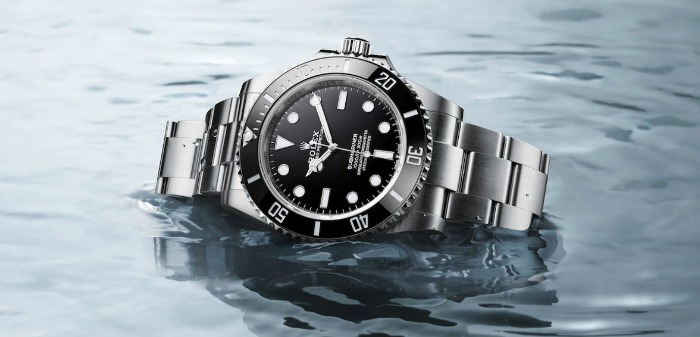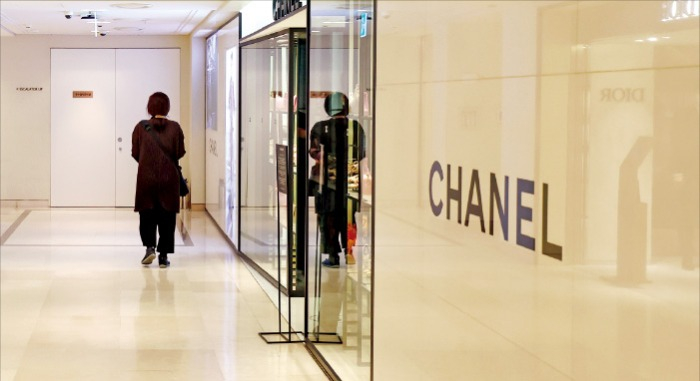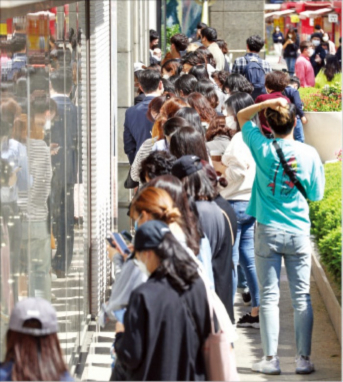Rolex resale prices tumble as the wealthy young tighten belts
A renewed travel boom has put another dent in the secondhand luxury goods market
By Mar 31, 2023 (Gmt+09:00)
LG Chem to sell water filter business to Glenwood PE for $692 million


KT&G eyes overseas M&A after rejecting activist fund's offer


Kyobo Life poised to buy Japan’s SBI Group-owned savings bank


StockX in merger talks with Naver’s online reseller Kream


Meritz backs half of ex-manager’s $210 mn hedge fund



The most sought-after luxury items such as Rolex watches and Chanel bags are selling at a much lower premium, or even below their original prices in South Korea’s secondhand market, hit by their shrinking buyer pool and increased supply.
Previously, it had put a cap on each buyer: one item per person every year.
In the secondhand market, a Rolex Submariner Date watch, nicknamed “Starbucks,” is traded in the 20 million won ($16,000) range, almost half its price in the 38 million won range in June of last year.
Chanel’s signature “Medium Classic Double Flap Bag” is selling for 11 million won in the resale market, down from 14 million won in December of last year.
Once the Chanel bag had traded at a premium of about 300,000 won ($230) in the secondary market thanks to its scarcity value and high liquidity, which made it a lucrative investment asset.
Reflecting the strong demand, the French luxury brand hiked its handbag prices four times in 2021 after its sharp price increase the previous year.
But the secondhand market for luxury goods is now inundated with Chanel bags, said the industry officials. Many of these secondhand items are traded below their retail prices.

Behind the subdued luxury resale market is the reduced spending by those in their 30s and 40s, the main buyers of high-end items.
The cooling job market and slower wage growth led to their spending cuts amid growing fears of a recession.
Naver Corp., South Korea’s top online platform, increased its paychecks by 4.1% on average last year, compared to the 26% hike in 2021, according to its annual report.
In January, popular foreign luxury brands saw their sales decrease 7.2% from the previous year, according to the Ministry of Trade, Industry and Energy.
It marked their first on-year decline in sales since March 2020 when the COVID-19 pandemic struck.
Their shops within the country’s three major department stores also suffered a 5.8% decline on-year in sales on average in both January and February of this year.
It reversed their sales growth of 20% or above on average in the past three years.

Loosened travel restrictions have cooled the luxury fever as well.
After the border reopening, South Korea’s well-to-do are opening their wallets toward overseas travels while curtailing luxury shopping.
Sales of travel bags have more than trebled in domestic department stores up to date, compared to last year.
In January, the Wall Street Journal coined the term “richcession,” meaning the wealthy will take a bigger hit from a recession, if it occurs this year, than usual.
“In the absence of confidence about an economic rebound, the rich are not willing to increase spending,” said professor Seo Yong-goo at Sookmyung Women’s University.
Write to Jeong-Cheol Bae and Yurim Oh at bjc@hankyung.com
Yeonhee Kim edited this article.
-
 Mergers & AcquisitionsLuxury watchmaker Hublot buys Korean ceramic supplier Ecco
Mergers & AcquisitionsLuxury watchmaker Hublot buys Korean ceramic supplier EccoMar 27, 2023 (Gmt+09:00)
1 Min read -
 The Deep DiveS.Korea’s love of luxury ushers in 3rd wave of bling boom
The Deep DiveS.Korea’s love of luxury ushers in 3rd wave of bling boomFeb 09, 2023 (Gmt+09:00)
4 Min read -
 E-commerceKorea's luxury e-commerce platform Balaan completes Series C
E-commerceKorea's luxury e-commerce platform Balaan completes Series COct 16, 2022 (Gmt+09:00)
2 Min read -
 Behind the ScenesSouth Koreans turned off by luxury fashion houses’ price hikes
Behind the ScenesSouth Koreans turned off by luxury fashion houses’ price hikesMay 11, 2022 (Gmt+09:00)
4 Min read -
 Korean startupsLuxury reseller EndAnd offers one-of-a-kind authentication service
Korean startupsLuxury reseller EndAnd offers one-of-a-kind authentication serviceOct 13, 2021 (Gmt+09:00)
3 Min read -
 RetailRolex emerges as latest target of S.Korea’s luxury brand fever
RetailRolex emerges as latest target of S.Korea’s luxury brand feverAug 24, 2021 (Gmt+09:00)
3 Min read -
 The Deep DiveBehind Korea’s bizarre 'open run' race for Chanel bags
The Deep DiveBehind Korea’s bizarre 'open run' race for Chanel bagsJun 08, 2021 (Gmt+09:00)
long read


